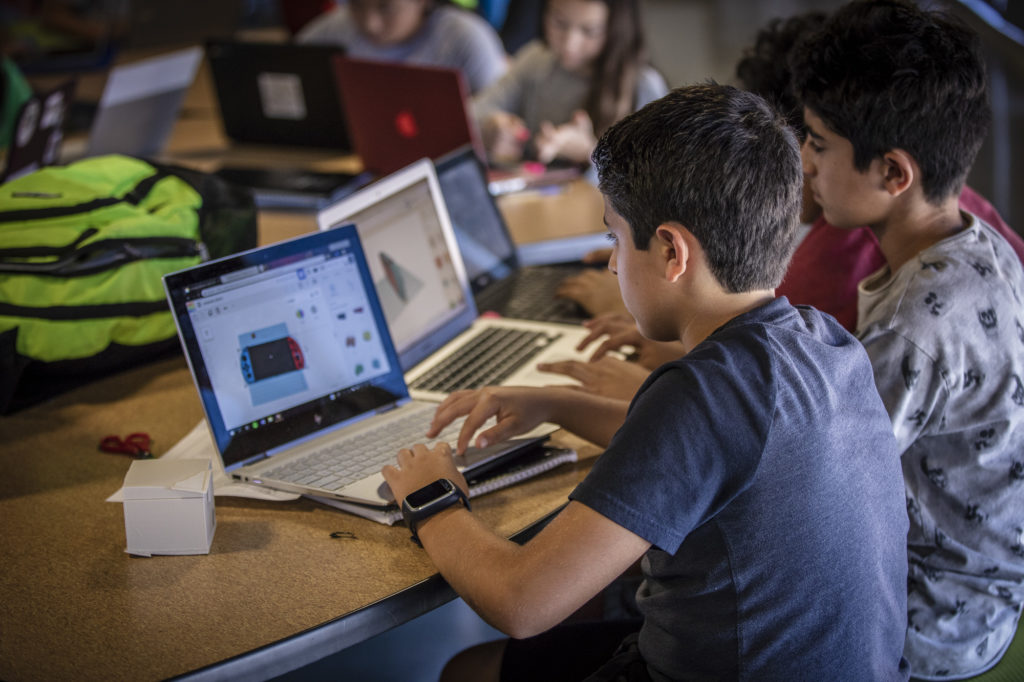
Is technology in an educational setting supposed to be the icing on the cake? I think that it can be, and for my generation of learners it certainly seemed to be considered as such. I remember going one or two times a week to a computer lab to learn how to type, which certainly is a valuable skill to have. However, consider what was communicated to me through that set-up. The technology was confined to a specific room, and a few minutes a week were carved out for us to learn how to interact with it. As an educator,I can attest that technology is no longer quarantined in many places, even having made its way to the classroom in an 1 to 1 student to device ratio in wealthier districts. Yet, there are still those that remain without access to technology, and even some that do have access to it have not fully integrated it into their culture of learning.If technology is viewed as only being the icing on the cake, then the latter two school districts are free to continue on, as they have been. After all, a cake does not become something different because it lacks icing. However, what if technology was not consider to be the icing, but an essential ingredient so crucial that without it there was no cake. I find the latter to be a much more accurate depiction of our current reality. Our world is being driven by technology, and the speed at which information travels expedites our progress.There are demands, both nationally and globally, for a competent workforce. A workforce that knows how to use its resources to gather and process data quickly and accurately then execute the best course of action. Technology being the key tool to aiding each of the competencies. The role of preparing this type of workforce belongs to our academic institutions. A lack of technology in the classroom, or an improper mindset of its place, robs our students of the opportunity to learn with and through technology. A chance to not only learn what was, but what is, and predict what will be. The goal is not simply to expose our students to technology, many of them could get that on their own at home. The goal for educators should be to teach our students how to think,form intelligent questions, pursue information, and apply it appropriately. A teacher’s ability to guide their students through these competencies cannot be undervalued. I foresee our students, having been mentored by caring and competent educators, entering the workplace prepared to collaborate and solve problems on a global scale.

Another benefit of technology that would go unused in its absence is its ability to adapt resources that helps build our students prior knowledge. It is a common practice for educators to connect new learning to the knowledge that students already possess. This knowledge can be gained in a number of ways including experiences. However, students living in poverty can carry fewer experiences to which the teachers can connect new learning. In my own experiences, I have been able to show a student videos and pictures of subjects that they had no previous knowledge about to help them understand and make sense of the lesson. I was able to accomplish this without a hitch, and continue smoothly. When I ponder the alternative, I’m not sure that I could have used enough descriptors to explain academically what they were able to see and comprehend in a few minutes.Consider the distance created between the front edge of our fast-paced information exchanges, and our students who need help getting caught up.
I have tremendous amount of faith in my fellow educators, many of which are already use technology effectively in their classrooms, to continue to adapt the needs of our students, so that they are best prepared to make a positive difference in our world.
This post is sponsored by Intel.
-Amanda

